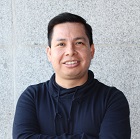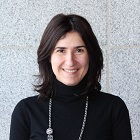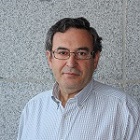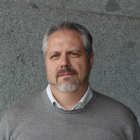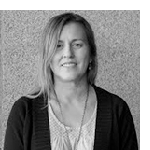SERPA group has its origin in the innovative spirit of the Professor Alfonso Álvarez, a pioneer in the applied research on dam engineering. Following his path, Professor Miguel Á. Toledo has put together a group of researchers with a formation in different fields, mainly engineers, mathematicians, and computer scientists. Some of them have expertise in hydraulic engineering which allows the applied approach of the research goals can be reached.
Members
Miguel Ángel Toledo
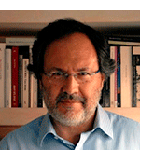 Professor Toledo has been teaching Dam Engineering at the Technical University of Madrid for more than 20 years, since 1991. Has been involved in plenty of designs and studies of dams and is the coordinator of the SERPA group. So, he is a rare mix of teacher, practitioner, and researcher. He has devoted and still does, much of his research activity to rockfill dam failure due to overtopping and how to avoid it. He is also interested in the application of machine learning techniques for analyzing data from dam monitoring.
Professor Toledo has been teaching Dam Engineering at the Technical University of Madrid for more than 20 years, since 1991. Has been involved in plenty of designs and studies of dams and is the coordinator of the SERPA group. So, he is a rare mix of teacher, practitioner, and researcher. He has devoted and still does, much of his research activity to rockfill dam failure due to overtopping and how to avoid it. He is also interested in the application of machine learning techniques for analyzing data from dam monitoring.
Eduardo Salete
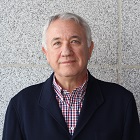 Ph.D. in Civil Engineer and Bachelor of Science degree in pure mathematics. Was a professor in mathematical methods and nowadays is a professor of hydraulic infrastructures. Throughout his professional career has managed research projects and doctoral thesis and has been involved in many projects for dams and other important infrastructures. Today directs his professional activity on the mathematical modeling of structural and CFD problems.
Ph.D. in Civil Engineer and Bachelor of Science degree in pure mathematics. Was a professor in mathematical methods and nowadays is a professor of hydraulic infrastructures. Throughout his professional career has managed research projects and doctoral thesis and has been involved in many projects for dams and other important infrastructures. Today directs his professional activity on the mathematical modeling of structural and CFD problems.
Carlos Castro
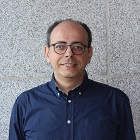 Full professor in Applied Mathematics at the Technical University of Madrid. He obtained his PhD. in Applied Mathematics at the Complutense University. His research includes Control and numerical approximation of Partial Differential Equations, optimal design, homogenization, and inverse problems.
Full professor in Applied Mathematics at the Technical University of Madrid. He obtained his PhD. in Applied Mathematics at the Complutense University. His research includes Control and numerical approximation of Partial Differential Equations, optimal design, homogenization, and inverse problems.
Rafael Morán
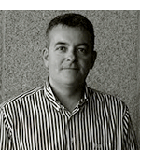 Rafael Morán, Ph.D. works as Lecturer of Hydraulic Engineering at the Technical University of Madrid (TUM) since 2009. His main teaching activities are courses of Dam Engineering and Hydraulic Infrastructures. Before taking his first academic job in the Department of Civil Engineering: Hydraulics, Energy, and Environment at TUM, he worked as a civil engineer for different consultant companies during 10 years performing technical studies, project designs, and technical project management in hydraulic engineering, most of them related to dam construction. His doctoral thesis deals with protections of rockfill dams against extreme through-flows using rockfill downstream berms. His current research lines are focused on dam safety, dam protections and analysis of monitoring data.
Rafael Morán, Ph.D. works as Lecturer of Hydraulic Engineering at the Technical University of Madrid (TUM) since 2009. His main teaching activities are courses of Dam Engineering and Hydraulic Infrastructures. Before taking his first academic job in the Department of Civil Engineering: Hydraulics, Energy, and Environment at TUM, he worked as a civil engineer for different consultant companies during 10 years performing technical studies, project designs, and technical project management in hydraulic engineering, most of them related to dam construction. His doctoral thesis deals with protections of rockfill dams against extreme through-flows using rockfill downstream berms. His current research lines are focused on dam safety, dam protections and analysis of monitoring data.
Francisco Javier Caballero
 MSc Civil Engineer (specialty on Hydraulics and Energetics, the year 1999) and graduate in Environmental Sciences (the year 2002), both of the Technical University of Madrid (UPM). His professional career is developed in the Hydraulic Infrastructures area, working in engineering companies with special profusion in the small dams and irrigation pools engineering sector, and river flood zones studies. Furthermore, since 2010, in collaboration with the UPM and the International Center for Numerical Methods in Engineering (CIMNE), he strengthens the Research and Development (R+D) works on dams engineering of his company, focused on increasing the discharge capacity of both existing and new dams by means of non-conventional spillways. From May 2013 on, he is a member of the Dam Safety Research Group (SERPA) in the UPM, where, among other tasks, he is developing his Ph.D. on dams and agricultural impoundments protections against overtopping. He additionally practices the profession in the environmental engineering sector (dams and agricultural impoundments engineering, fluvial hydraulics area and incorporation of renewable energies into these sectors especially photovoltaic solar energy) and teaches Hydraulics and Hydrology and Water Planning and Management in the Civil Engineering School at the UPM.
MSc Civil Engineer (specialty on Hydraulics and Energetics, the year 1999) and graduate in Environmental Sciences (the year 2002), both of the Technical University of Madrid (UPM). His professional career is developed in the Hydraulic Infrastructures area, working in engineering companies with special profusion in the small dams and irrigation pools engineering sector, and river flood zones studies. Furthermore, since 2010, in collaboration with the UPM and the International Center for Numerical Methods in Engineering (CIMNE), he strengthens the Research and Development (R+D) works on dams engineering of his company, focused on increasing the discharge capacity of both existing and new dams by means of non-conventional spillways. From May 2013 on, he is a member of the Dam Safety Research Group (SERPA) in the UPM, where, among other tasks, he is developing his Ph.D. on dams and agricultural impoundments protections against overtopping. He additionally practices the profession in the environmental engineering sector (dams and agricultural impoundments engineering, fluvial hydraulics area and incorporation of renewable energies into these sectors especially photovoltaic solar energy) and teaches Hydraulics and Hydrology and Water Planning and Management in the Civil Engineering School at the UPM.
Miguel Ángel Fernández
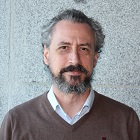 His professional activity was focused, almost entirely, in the field of hydraulic works. He started his career in the company PROMOCIÓN Y PROYECTOS, S.L. (PYPSA), subsequently absorbed by the ALATEC Group, where his work was carried out for 8 years in which he became head of the Department of Hydraulic Works. In 2007 a new stage began in IDOM INGENIERÍA Y CONSULTORÍA, SA as Head of Dams and Hydroelectric Power Plants at the global level of the firm and the Hydraulic Works in the Infrastructure Technical Area of the Madrid Office. This stage lasts another 8 years after which, he is hired by the North American firm SUNEDISON for the development of the hydroelectric generation product within the firm. After two years in this company, he changes the direction towards the research in Dams Safety. He is part of the Research Group in Dams and Spillways Safety (Seguridad de Presas y Aliviaderos – SERPA) of the Universidad Politécnica de Madrid (UPM) since January of 2017, being the director of the data analysis research line. In addition, since 2004 he combines professional activity with teaching as Associate Professor at the Universidad Politécnica de Madrid (UPM).
His professional activity was focused, almost entirely, in the field of hydraulic works. He started his career in the company PROMOCIÓN Y PROYECTOS, S.L. (PYPSA), subsequently absorbed by the ALATEC Group, where his work was carried out for 8 years in which he became head of the Department of Hydraulic Works. In 2007 a new stage began in IDOM INGENIERÍA Y CONSULTORÍA, SA as Head of Dams and Hydroelectric Power Plants at the global level of the firm and the Hydraulic Works in the Infrastructure Technical Area of the Madrid Office. This stage lasts another 8 years after which, he is hired by the North American firm SUNEDISON for the development of the hydroelectric generation product within the firm. After two years in this company, he changes the direction towards the research in Dams Safety. He is part of the Research Group in Dams and Spillways Safety (Seguridad de Presas y Aliviaderos – SERPA) of the Universidad Politécnica de Madrid (UPM) since January of 2017, being the director of the data analysis research line. In addition, since 2004 he combines professional activity with teaching as Associate Professor at the Universidad Politécnica de Madrid (UPM).
Ricardo Alves
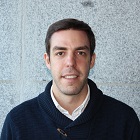 Ricardo Alves obtained in 2011 the master degree in Civil Engineering from the Faculty of Sciences and Technology of the New University of Lisbon and performed the internship in the National Laboratory of Civil Engineering of Portugal (LNEC) to do the master dissertation in geotechnics. Since 2012 works with the Dam Safety Research Group (SERPA) as a researcher at the Technical University of Madrid where in 2016 joined the Ph.D. program. His doctoral thesis focuses on the failure of rockfill dams.
Ricardo Alves obtained in 2011 the master degree in Civil Engineering from the Faculty of Sciences and Technology of the New University of Lisbon and performed the internship in the National Laboratory of Civil Engineering of Portugal (LNEC) to do the master dissertation in geotechnics. Since 2012 works with the Dam Safety Research Group (SERPA) as a researcher at the Technical University of Madrid where in 2016 joined the Ph.D. program. His doctoral thesis focuses on the failure of rockfill dams.

